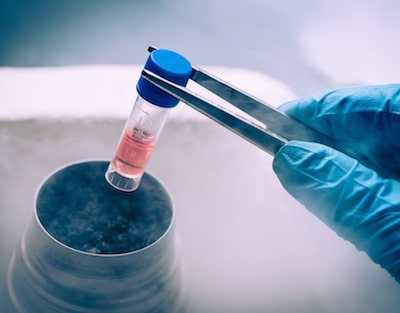In an effort to treat Alzheimer’s disease, a start-up company known as Cell-Easy is teaming up with the University of Toulouse in France to carry out a trial to see if stem cells that are obtained during a liposuction procedure can help treat Alzheimer’s disease.
Alzheimer’s disease is considered to be the leading cause of dementia in the world as it accounts for 60%-70% of all cases of the disease. As of 2015, there were 9.9-million people diagnosed with a new case being diagnosed every three minutes according to the World Health Organization (WHO).
In most cases, the disease manifests itself through memory disorders before having an impact on additional brain functions. Over a gradual period of time, daily tasks become more difficult to the point that it becomes impossible for patients to handle their daily tasks as well as adapt to new situations.
 There is no known cure for Alzheimer’s disease but, due to the large number of people currently impacted by the disease, researchers are doing their best to try and slow down the progression of the disease. The treatment idea of using stem cells to replace damaged cells with healthy cells is one of the therapeutic approaches growing in use by researchers around the globe.
There is no known cure for Alzheimer’s disease but, due to the large number of people currently impacted by the disease, researchers are doing their best to try and slow down the progression of the disease. The treatment idea of using stem cells to replace damaged cells with healthy cells is one of the therapeutic approaches growing in use by researchers around the globe.
For example, in France, the university hospital of Toulouse (CHU de Toulouse) made an announcement on June 14th that they will soon launch a study based on stem cells that are obtained by plastic surgeons during liposuction.
Liposuction is a cosmetic procedure that is performed to slim and reshape problem areas on the body through the elimination of excess fat. The elimination of the excess fat provides a better contour to the body on areas such as the upper arms, abdomen, hips, calves and thighs. There are multiple liposuction techniques that can be performed and the type of liposuction is determined by the health of the patient and the final results desired by the person. It should be noted that liposuction is not a weight loss treatment. Tiny incisions are made in the targeted area on the body and the stubborn deposits of fat are removed through a suction tube known as a cannula.
Cell-Easy is a start-up company based in Toulouse and they are dedicated to the large-scale production of stem cells. The company recently obtained permission to carry out clinical trials using human stem cells that are obtained from fat tissue that is available in large quantities in the human body.
When speaking to a French journal, Pierre Monsan, director of Cell-Easy and founder of the French biotechnology association in La Tribune de Toulouse, said, “The first challenge for Cell-Easy was to reduce the cost of fat stem cell production by a factor of 10 in order to make this therapy available to as many people as possible. We have succeeded in this. Today we can open our pharmaceutical facility. Actually, we already started equipping the laboratory. Production will start in about six months. The production capacity of the plant will reach 100,000 doses per year.”
Monsan added, “We take this waste and turn it into medicine. Although stem cells often come from umbilical cords or painful lumbar punctures, our technology allows us to multiply them>
Cell-Easy has announced a cooperation agreement with the University Hospital of Toulouse for a clinical study on Alzheimer’s disease and the clinical trial is scheduled to start in early 2021.
The research team will study nine patients, between the ages of 50 and 85 years of age, who have just been diagnosed with Alzheimer’s disease in the university hospitals of Toulouse and Montpellier.
Even through the disease is mostly characterized by chronic inflammation of the brain that can cause deposits of protein, the scientists that are following the patients will test the anti-inflammatory effects of stem cells “and their ability to slow down the progression of the disease”.
The participants in the study will be injected with stem cells into the bloodstream. If the initial results look to be promising in treating the disease, the number of people in the study might grow to a number closer to 50 people.
The medical research that is being conducted towards the treatment of Alzheimer’s disease is showing some progress. Scientists have recently discovered promising information towards establishing a biomarker for the disease in the retina of patients.
The top level of neurons in the retina of a mouse model of Alzheimer’s disease showed a change in its overall structural texture. By combining this discovery with data on changes in the thickness of this layer, the new measurement could provide a more readily available biomarker for medical professionals and researchers when it comes to treating Alzheimer’s disease. It is hoped that the ability to detect the disease much earlier than in the past will provide a significant improvement in the quality of life for millions of people around the world.
MA